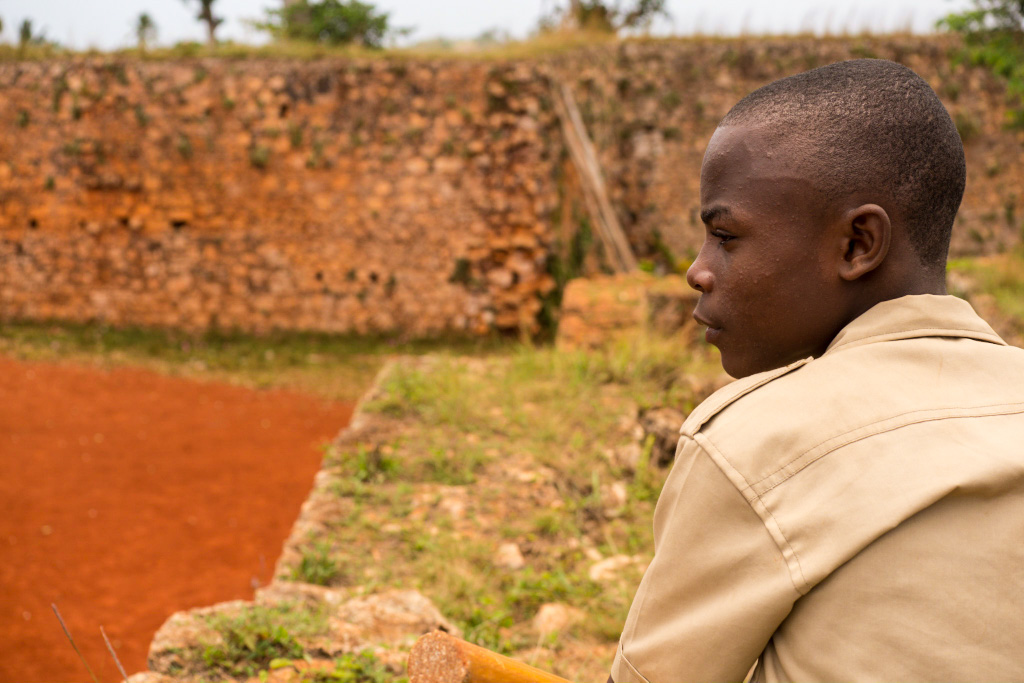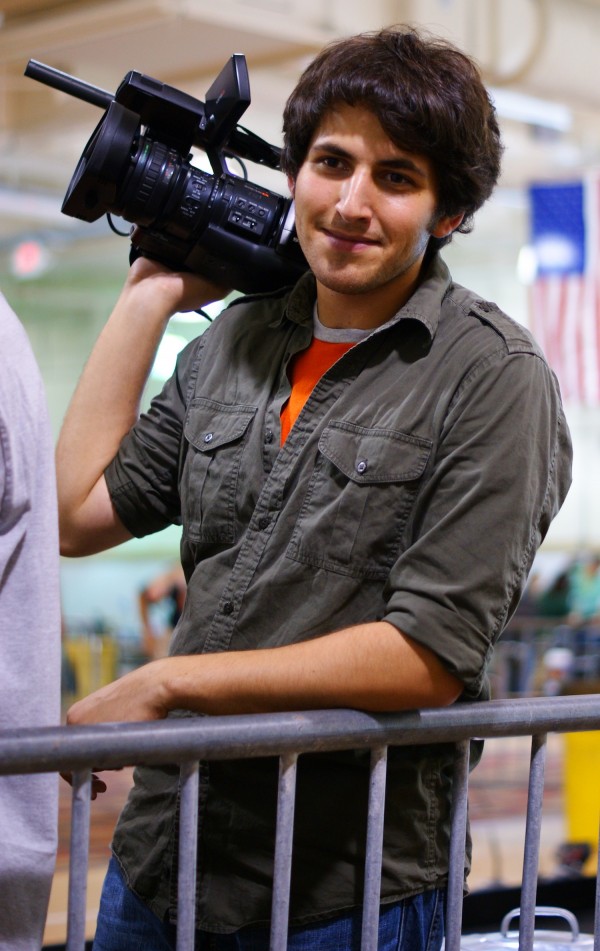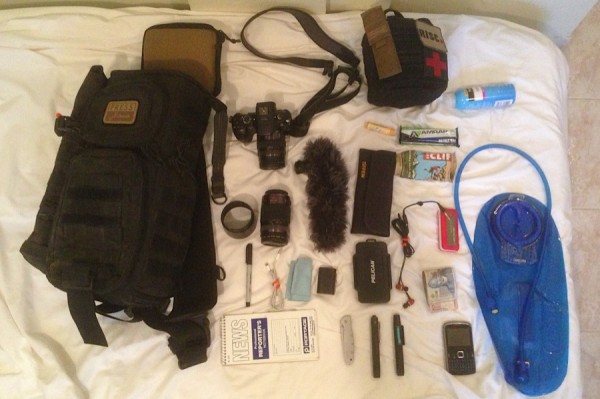JOEY DAOUD is a documentary producer, cinematographer, and photographer. He is a contributor to the New York Times and Monocle. He’s produced projects in Ciudad Juarez, Haiti, and the Middle East. His latest feature is the award winning documentary Bots High, exploring the world of high-school robot builders. He is currently on assignment with the Haitian Fencing Project. Keep up with him on Twitter, Instagram, or on his site.


What Journalists Carry on the Front Lines: Joey Daoud, Haiti
- Hazard 4 Photo Recon bag — I just bought this and it’s a really great bag, better than any of the sling Kata or LowePro bags I’ve used.
- Panasonic GH3 — This camera is great for video (especially with the mic), is small, and still takes really good photos.
- Panasonic 12-35 mm lens
- Panasonic 35-100 mm lens
- Panasonic shotgun mic
- Tiffen ND and Polarizer filters
- Pelican card case
- Spare battery
- Lens cloth
- iPhone cable
- Pen
- Notepad
- Pocket knife
- Flashlight
- Lens brush
- Local phone
- Local currency
- Headphones
- USB battery
- Clif Bar and Amrap Refuel energy bars
- Burt’s Bees chapstick
- Sunscreen
- Individual First Aid Kit (IFAK) — This is a bigger one than the one they gave me at RISC, but I kept the velcro patch to represent.
- 100oz CamelBak bladder and MOLLE attaching pouch for the camera bag — I’m terrible with staying hydrated, but if it’s in my face I’m much more likely to keep drinking.
1The Frontline Freelance Register (FFR) is a representative body for freelancers, created and run by freelancers. It is an independent, ring-fenced entity which sits within the Frontline Club Charitable Trust with membership open to all freelance journalists working in conflict or foreign reporting. The FFR’s core objective is to support the physical and mental well-being of freelance journalists. In a world where staff jobs and fully paid foreign assignments are increasingly scarce, foreign and war reporting is dominated by freelancers, many of whom are deeply committed professionals doing outstanding work. At the same time, many of these freelancers lack the institutional support and the financial means to adequately manage the challenges of operating in dangerous environments in the long term. They also lack organised representation, often leaving them at the mercy of powerful media groups. FFR aims to help freelancers by providing them with a forum, a representative body, and a critical mass to face some of these challenges.


